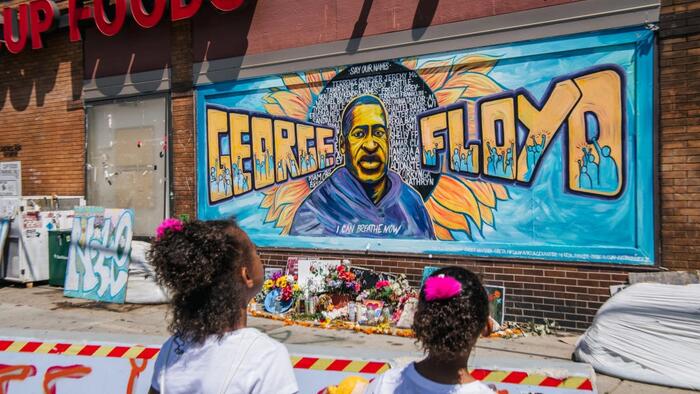In a recent ruling, U.S. District Judge Paul A. Magnuson denied a request from the federal government to prevent Derek Chauvin from examining George Floyd’s heart tissue, a critical aspect of Chauvin’s ongoing legal battle. The judge’s two-page order, filed on December 19, emphasized that the government failed to present compelling reasons to alter his earlier decision. This ruling comes in the wake of an ongoing effort by Chauvin, the former Minneapolis police officer convicted of murdering Floyd in May 2020, to gather evidence that may support his claim regarding the cause of Floyd’s death. Specifically, Chauvin posits that Floyd’s demise was not directly tied to the restraining techniques used during the arrest.
The court had initially permitted Chauvin to test various substances, including Floyd’s blood and heart tissue preserved from his autopsy, to substantiate his argument. Chauvin has indicated that these tests could bolster the opinion of Dr. William Schaetzel, an expert who suggested that Floyd’s death may have resulted from a heart attack rather than the police restraint administered by Chauvin. This development is critical for Chauvin’s legal team, as they seek to challenge the narrative that led to his conviction, focusing instead on medical factors outside of police conduct.
Chauvin’s case also highlights issues of legal representation, with Chauvin asserting that his former attorney failed to relay crucial information from Dr. Schaetzel, which could prove beneficial to his defense. During Chauvin’s original trial, similar opinions regarding Floyd’s cause of death were offered by another expert witness, which the government argues undermines Chauvin’s claim of ineffective counsel. They contend that there is already sufficient expert testimony in the record and that Chauvin’s current request for discovery may not be justifiable under these circumstances.
In response to Chauvin’s request for examinations, the U.S. Department of Justice sought reconsideration, arguing not only against Chauvin’s claims of inadequate representation but also requesting their access to any expert disclosures pertaining to Chauvin’s defense. The government’s motion called for a comprehensive overview of any experts intended to be utilized, along with lab reports and results generated through any testing conducted. Their goal was to ensure a fair and thorough understanding of the evidence to be presented in the case.
Despite the government’s objections, Magnuson reaffirmed his prior ruling, emphasizing that he believed the discovery sought by Chauvin was warranted, particularly given the seriousness of the criminal case involved. He indicated that Chauvin’s exploration into the medical evidence could provide essential insights into Floyd’s death and its possible causes. At the same time, while declining to grant the government’s request for a formal order on test results and disclosures, Magnuson expressed expectation of cooperation between the parties regarding access to necessary evidence.
Ultimately, this ruling sheds light on ongoing debates within the broader context of the judicial system, particularly in high-profile cases that spark public and media scrutiny. The judge’s commitment to allowing Chauvin’s examination of evidence suggests a nuanced approach to ensuring justice while balancing both the rights of the convicted individual and the state’s interests in pursuing accountability. As the legal proceedings move forward, the outcomes of these examinations could have significant implications not just for Chauvin, but for interpretive narratives surrounding issues of police conduct and systemic injustice.

